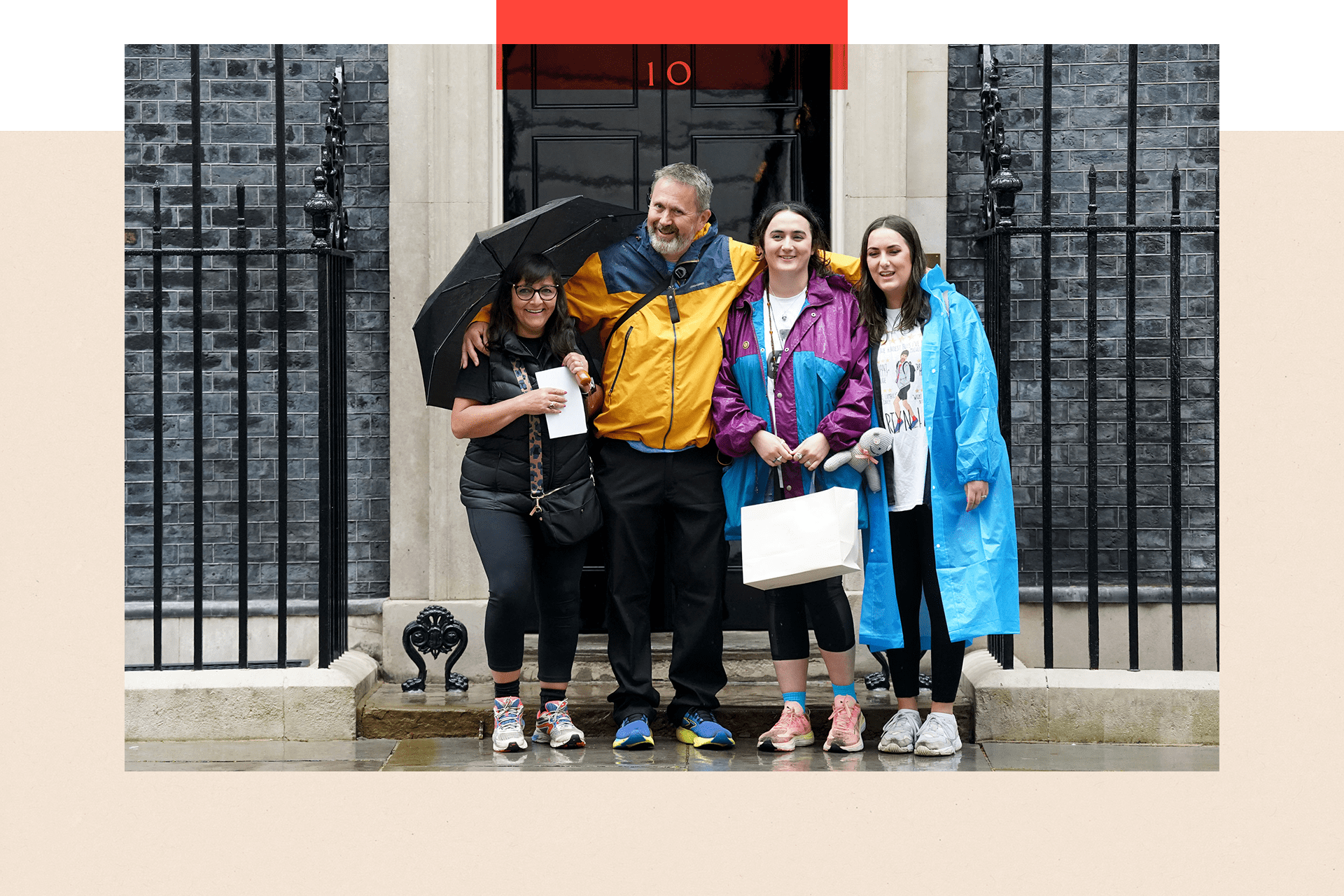
The inclusion of both the Hillsborough Law and Martyn’s Law in the King’s Speech is a big moment for people power.
Assuming they are implemented, these measures will do very different things – the first places a duty on public officials to comply fully with inquiries and requires bereaved families to be given fair legal funding. The second will ensure that public venues cater for the threat of terrorism in their risk planning.
What both laws have in common is that each has been spearheaded by people who were bereaved through tragedies that thrust them into the public eye. These are ordinary people creating legacies out of loss – determined that others shouldn’t suffer like they did.
Neither victory came easily. Years of struggle lay behind them.
Each follows in the wake of a raft of petitions, parliamentary debates and media campaigns. And none of those measures alone would have been sufficient to get the laws over the line.
The campaigns have also experienced many highs and lows – getting close to the statute books, and then being de-prioritised, in what must have felt like a legislative edition of snakes and ladders.
All this raises the question - what do their journeys tell us about how easy it is for ordinary people to change the law?
Do the wheels of justice turn slowly because ministers make warm noises to bereaved families, without following through on their promises? Or is it a sign that the system is working, because any new law has to be thoroughly tested and consulted upon?

Campaigners have fought for justice for 97 Liverpool supporters who died as a result of the April 1989 disaster
Ask anyone involved in the Hillsborough or Martyn’s Law campaigns and they’ll agree that this is a hard-won moment.
The Hillsborough families have been fighting for justice on various fronts since 1989 but calls for this piece of specific legislation grew out of the second coroner’s inquests into the football disaster, which ended in 2016 and established that those who died were unlawfully killed.
The inquests became an adversarial battle between the families and agencies including the police, and the law was proposed to stop other bereaved families from going through the same thing.
It means there will be “a duty on public authorities and servants to tell the truth and proactively assist inquiries”, says Pete Weatherby KC, one of its chief architects.
He describes it as a “a potential game-changer” but adds: “It is very difficult for those with lived experience to effect legislative change.”
Those behind the Hillsborough Law point to the “culture of denial” they’ve seen in other inquiries into the infected blood and Post Office scandals as well as the the Grenfell Tower fire.
Martyn’s Law, meanwhile, was the brainchild of Figen Murray, whose son Martyn Hett was murdered in the 2017 Manchester Arena attack. The venue had been under no legal duty to provide a plan in case of a terror attack.
Figen noticed this gap in the legislation relating to safety at public venues and made it her personal mission to close it.
Most recently, she walked from the spot where her son was killed to the front door of No 10 Downing Street, to raise awareness of her campaign.
A few hours after she met Rishi Sunak, he called the general election – and her hopes of the law being enacted in the last parliamentary session were dashed. Now it is back on the legislative menu.

Figen Murray outside 10 Downing Street with husband and daughters
Also in the King’s Speech was the Renters' Rights Bill, which will extend a series of building safety rules for social tenants to private renters. This is known as Awaab's Law after two-year-old Awaab Ishak, who died after he was exposed to mould at his family's home in Rochdale. It is another piece of legislation introduced after public pressure following a tragedy with national implications.
Recent frequent changes of government haven’t helped speed up the passage of any of these proposals. Each time the Whitehall revolving door spun again, the campaign teams found themselves having to brief different ministers, some of whom were more supportive than others.
That isn’t the only reason why things have taken time. Martyn’s Law went through two public consultation exercises, the second of which was prompted by criticism of the proposed legislation from the Home Affairs Select Committee last spring.
The committee had warned that it had “serious concerns” about the financial burden that could be placed on smaller venues. It also said the aims of the bill as it stood were “unclear”.
The extra consultation delayed the timetable, though it gave those who stood to be impacted by the law a further opportunity to feed into the process.
Meanwhile, the Hillsborough Law campaigners have seen their proposals appear in a variety of different iterations.
They were first introduced in 2017 as part of the Public Authority (Accountability) Bill, and got as far as its first reading, but fell after the 2017 general election was announced.
Last year campaigners voiced their anger when the government signed a Hillsborough Charter, which fell short of their demand for a legally enforceable duty of candour. Instead only voluntary measures were offered.
One campaigner, Louise Brookes, whose brother Andrew was killed in the disaster, called it an “insult.”
So to get to this point is a big moment for those behind both laws.
The Mayor of Greater Manchester Andy Burnham should know – he’s at the centre of the Venn diagram of both campaigns. He tabled the first Hillsborough Law bill when he was still an MP and has also supported the Martyn’s Law campaign.
As Burnham waved Figen Murray off on her walk to Downing Street I asked him why he thought she was having to fight so hard.
He answered: “It’s hard to change the law in this country, and perhaps rightly so. Because, you know – this legislation would have a big impact on everybody. But then, that’s why we need it.”
However Brendan Cox, the widower of murdered MP Jo Cox who has supported the Martyn’s Law campaign since its launch, sees things differently.
While he says he agrees that legislation needs to meet a high threshold and that no-one wants bad laws, Cox says: “The years of promises and delays reflect a lack of delivery that frustrates the public and stops common-sense laws being delivered quickly.
“This government must do better than the last one in delivering its promises and listening to good ideas, no matter who they come from.”
More from InDepth
She's made her opening gambit. What's the chancellor's long game?
- Published14 July 2024
Which voters should the Tories go after now?
- Published12 July 2024
Can we change how our brains age? These scientists think it’s possible
- Published10 July 2024
Amid all the celebration, there are some notes of caution from campaigners that perhaps speak volumes about the reality of past let-downs.
Pete Weatherby KC, who drafted the original Bill upon which the concept of a Hillsborough Law is based, points out that the devil will now be in the detail, saying: “We hope and trust the justice secretary will now engage with us to ensure the new law actually delivers.”
Survivors and bereaved families speak with fire in their bellies about wanting to make positive change out of their personal tragedy. Charlotte Hennessy, whose father Jimmy was killed at Hillsborough, said of the proposed law: “I can't think of a bigger legacy to the 97 innocent, unlawfully killed victims of the Hillsborough disaster.”
The campaigners’ energy and passion is clear – and they’ve needed it to stay the distance.
Figen Murray was appointed an OBE for her work in counter-terrorism. Solicitor Elkan Abrahamson, who represented Hillsborough families over many years, was recently awarded the freedom of the City of Liverpool for his achievements in championing social justice.
Doubtless both of them would tell you that they appreciate the recognition but would have swapped their gongs for the speedier enactment of the laws they’ve fought for.
BBC InDepth is the new home on the website and app for the best analysis and expertise from our top journalists. Under a distinctive new brand, we’ll bring you fresh perspectives that challenge assumptions, and deep reporting on the biggest issues to help you make sense of a complex world. And we’ll be showcasing thought-provoking content from across BBC Sounds and iPlayer too. We’re starting small but thinking big, and we want to know what you think - you can send us your feedback by clicking on the button below.
Get in touch
InDepth is the home for the best analysis from across BBC News. Tell us what you think.

